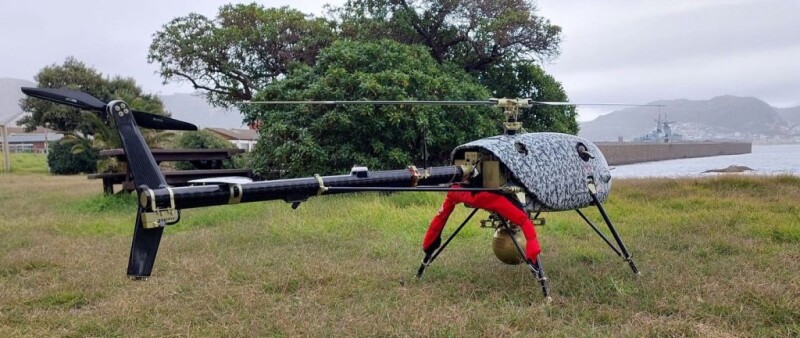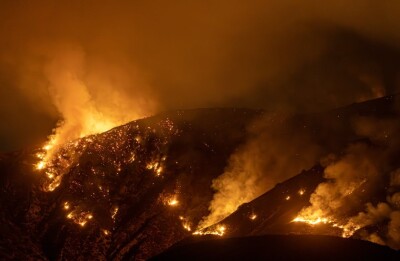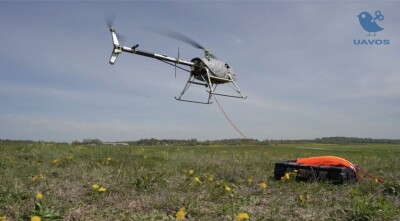UAVOS has successfully completed its first field deployment supporting wildfire suppression agencies with its UVH 170 unmanned helicopter.  In this mission, UAVOS' drone pilots were deployed during the day and also at night to gather timely data for situational awareness, ensuring high-quality data collection. Providing geospatial data in real-time has been a goal in fire mapping.
In this mission, UAVOS' drone pilots were deployed during the day and also at night to gather timely data for situational awareness, ensuring high-quality data collection. Providing geospatial data in real-time has been a goal in fire mapping.
The UVH 170 unmanned helicopter gathered georeferenced data using visible-light cameras and thermal imaging cameras. The mission results established that the UAVOS' Gimbal 201, which the UVH-170 UAS is equipped with, meets fire services criteria providing target sensitivity, accuracy, and data delivery based on the needs of fire operations.
Fully automatic, UAVOS’s UVH 170 helicopter can fly for up to 5 hours and carry payloads that weigh up to 4 kg including sophisticated sensors for civilian and security purposes. In a wildfire situation, UAVOS pilots fly the UVH 170 UAS two thousand meters above the ground to capture highly accurate video feeds along the fire’s boundaries.
These video feeds are georeferenced live and streamed to the UAS ground control station in real-time. Afterwards, data specialists use the video and a special program to interpret the infrared data. By eliminating delays in imagery acquisition, interpretation, transmission, and production, fire personnel can receive updates in real-time, enabling informed decision-making when it matters most.
“Operating from a safe distance, a drone pilot can identify and geo-locate hot spots providing critical information to the fire management team to aid them with planning, resource management, and assigning tasks and priorities for the day. This process is a lot faster and safer than firefighters walking through hazardous terrain surveying the fire line,” - comments UAVOS CEO Aliaksei Stratsilatau.
Source: UAVOS
















Comments